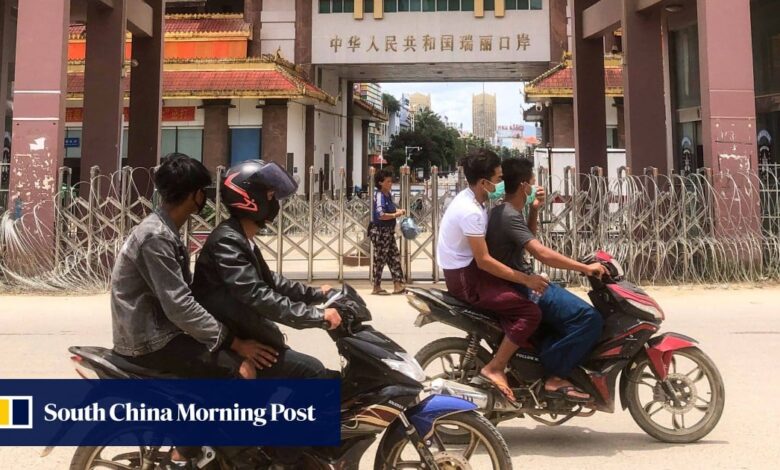Trapped scam victims in Myanmar pin hopes on China’s cybercrime crackdown: ‘I want my freedom back’

The cross-border action by Chinese authorities has also spurred hopes of release among those who remain in guarded compounds further from the immediate frontier zone.
“I want my freedom back, and I don’t want to lose this chance,” one Malaysian scam worker in northern Myanmar told This Week in Asia. “We’re hoping the raids are for real, rather than just for show. I’m afraid the Chinese operations might miss this place … I cannot wait to feel freedom again.”
Malaysians are coveted by the scam operators for their education, especially English and Chinese language skills, allowing them to target marks in China, where billions of dollars have been conned from citizens in investment fraud, romance scams and extortion.
More than 570 Malaysians have returned from the scam centres, but scores more have been reported to authorities as trapped in scam centres, according to official statistics.

Beijing gets tough
In recent weeks, Beijing has moved to tackle the scam issue, issuing warrants for scores of Chinese fugitives believed to be at the apex of the multibillion-dollar fraud industry.
Earlier this week, Chinese authorities made public an arrest warrant for two Wa officials – Bao Yanban and He Chuntian – as “important leaders of a telecommunication fraud crime group in northern Myanmar”.
“They are involved in the long-term organisation of scam dens, targeting Chinese citizens,” said the warrant issued by the public security ministry, adding the suspects had made “huge amounts” of money in an “extremely vile” criminal enterprise.
The rare public admonishment of officials from the Wa, an autonomous Chinese ethnic group who use the border area to produce and traffic drugs and have a Chinese-armed standing army of about 25,000, drew a sudden reaction from a leadership which routinely denies all allegations of involvement in crime.
‘We can kill you here’: inside the lawless Chinese-run scam hubs of Myanmar
‘We can kill you here’: inside the lawless Chinese-run scam hubs of Myanmar
On Monday, the UWSP said it had “withdrawn” Bao’s politburo membership, expelled him from the party and military, and stripped him of his role as head of the construction ministry.
He Chuntian was stripped of his role as mayor of a district in Wa State, according to the UWSP statement. It did not give details on the current whereabouts of Bao – who also goes by the name Chen Yanban – or He, who is also known as Xiao Yankui.
Chinese state media carried a notice urging the pair to hand themselves in if they want “leniency” from the criminal justice system.
“The warrants are a signal by China to the Chinese population – and the wider region – that they’re serious about taking action,” a senior diplomatic source close to the scam issue said, requesting anonymity as they are not authorised to speak.
“The warrants issued are for significant players,” the source said, adding Myanmar’s isolated junta had also come under pressure to appease Beijing by pulling in scams run by the border militias it retains control over.
Yet desperation is mounting for those in scam compounds in north Shan State further from the border area where the crackdowns have taken place so far.
Trafficked workers from Thailand say they are unsure if China will free them – or if they will eventually be expected to find their own way south through a dangerous thicket of armed groups.
“No one can help us here … we’re not that important,” one Thai person tricked into travelling to Myanmar to scam said in a message to a friend shared with This Week in Asia.
“Please take care of my mum for me. I hope to contact you again in a year when I reach my [sales] quota. I love you bro.”
The only routes home are to hit daily quotas to scam for endless months in the hope of being released, or to pay a ransom fee to break a “contract” of up to US$13,000.

Conditions inside the scam parks vary, but beatings and collective punishments are common for failing to reach “sales” targets or attempting to escape.
Scam gangs also routinely sell on their workers to rival operations in a cycle which has pushed untold thousands deeper into Myanmar.



 Free spins for beginners
Free spins for beginners